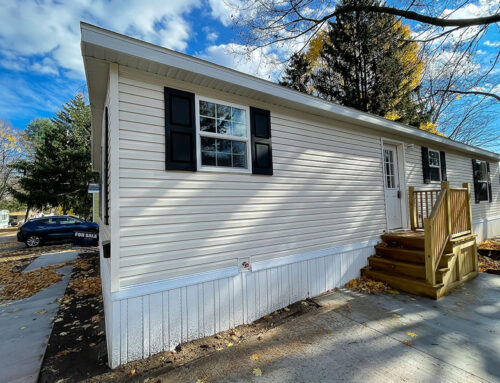Because I’m fairly well-known in local circles as a successful investor, people come to me all the time with questions about where to get real estate investment training in New York City. Today was no exception. When I was checking in on one of my latest rehabs, a local designer popped by to pick my brain about what makes a great investment house. As the owner of a Manhattan design boutique, Barbara has had a lot of experience working with real estate pros. Even so, she said the idea of becoming an investor herself was a little intimidating. She’d already started a list of classes and workshops, so I suggested we go over them together and draw out the best of the best.
Getting Real Estate Investment Training in New York City
In New York, there are many different avenues you can take in pursuit of real estate investment training. That’s why it’s important to keep in mind what a training program should offer so that you can get the most for your money–especially if you are not already coming to the table with a background in investing.
A good real estate investment training program will provide students with a thorough understanding of everything from how to find deals on properties, evaluate rehab costs, and predict potential profits when buying and selling at the right price. A great program will also equip students with powerful marketing tools and practical guidelines for building a winning real estate investing brand. And the best training provides one-on-one mentorship when the classwork ends and your investment career begins.
The goal, of course, is to be able to hit the ground running. Barbara’s list of training programs wasn’t a bad place to start. Let’s take a look and see where she ended up.
New York Real Estate Institute (NYREI).
While primarily geared toward real estate brokers and agents, NYREI offers a weekend real estate training program that focuses specifically on investing. The workshop is scheduled multiple times throughout the year in Manhattan and students can attend as many times as they’d like for a one-time fee of $995. A variety of topics are covered, including where to find investment properties, deciding which improvements to make, and how to analyze potential returns. In the end, students are awarded a certificate of completion. For those who want or need more in-depth training, one-on-one coaching is also available for $5,000 and includes 10 one-hour sessions.
Unfortunately, everything you need to know about investing in real estate just can’t be taught in two days no matter how often you attend the same weekend seminar. And the certificate for completing a two-day seminar is just about useless in this business. It’s certainly a plus that NYREI also offers individual real estate investing coaching, but it comes at a steep price–one I wouldn’t recommend anyone pay. The class instructor is also a speaker-for-hire and consultant, which leads me to believe that the brief investing instruction is the hook and expensive coaching is the catch. Needless to say, we threw this one back.
Baruch College Continuing and Professional Studies (CAPS).
Manhattan’s Baruch College offers individual courses in real estate investing, as well as certificates in related careers like construction management and real estate appraisal. On average, classes meet on a weekly basis for four to six weeks and cost anywhere from $225 to $475. Through CAPS, you can learn how to deal with foreclosed properties, market your house once it’s rehabbed, and operate financial analysis software–useful skills for any investor to possess.
Although several of the classes are affordable and fitting for novice investors to take, the overall curriculum leaves a lot to be desired–unless you aspire to complete one of the certification programs. Getting a certificate, however, isn’t required to work as an investor and does nothing to boost your credibility. Stretching individual classes out over several weeks at a time is also undesirable when you want to get a move on your new career. For most adults, a real estate investing training program has got to give the most amount of information in a manageable amount of time. After all, there are properties to buy! We quickly moved on from this option.
Fordham Real Estate Institute.
Two tracks are available for would-be investors at Fordham University’s School of Professional and Continuing Studies. For approximately $46,000, you can earn your Master of Science in Real Estate in one to three years by attending full-time or part-time. Or you can go the non-degree route and take only the investing-related courses you need–onsite at the Lincoln Center or online–for $595 each. The benefit of the latter track is that if you decide to return later and pursue your Master’s, the classes you’ve already taken will apply toward your degree. The admissions team will also consider waiving the graduate school testing requirement under certain conditions. In the meantime, you’ll learn subjects such as investing in multi-family units and how to finance your projects.
But if your goal is starting a career in real estate investing, obtaining a graduate degree is an unnecessary and expensive step to take, even as competitive as Fordham’s price tag is. The added time spent mired in theory rather than practice will only delay the development of your skills and the growth of your portfolio–putting you far behind the curve of your professional peers. The non-degree track isn’t necessarily a better option either. Spending several semesters in a few classes won’t get you investing in real estate, or your new career, any faster. And in this business, timing is everything.
There are advantages to going with any of these real estate investment training programs. But in terms of getting the most for your time and money, none of these opportunities really add up. There is one that does, however.
Getting the Most from Your Investment Education
Becoming an independently owned and operated HomeVestors® franchisee tops my list for gaining real estate investment training. Not only does HomeVestors® offer an extensive week-long training program that covers the important aspects of investing in real estate, but it also provides every franchisee with a mentor—at no additional cost—for the life of the franchise.
After I told Barbara that I am a HomeVestors® franchisee and that’s how my investing career really got started, she made a new list. At the top, she wrote “Contact HomeVestors®.” I suspect she’ll be on her way to designing a new career in no time.
Each franchise office is independently owned and operated.
Contact
"*" indicates required fields





